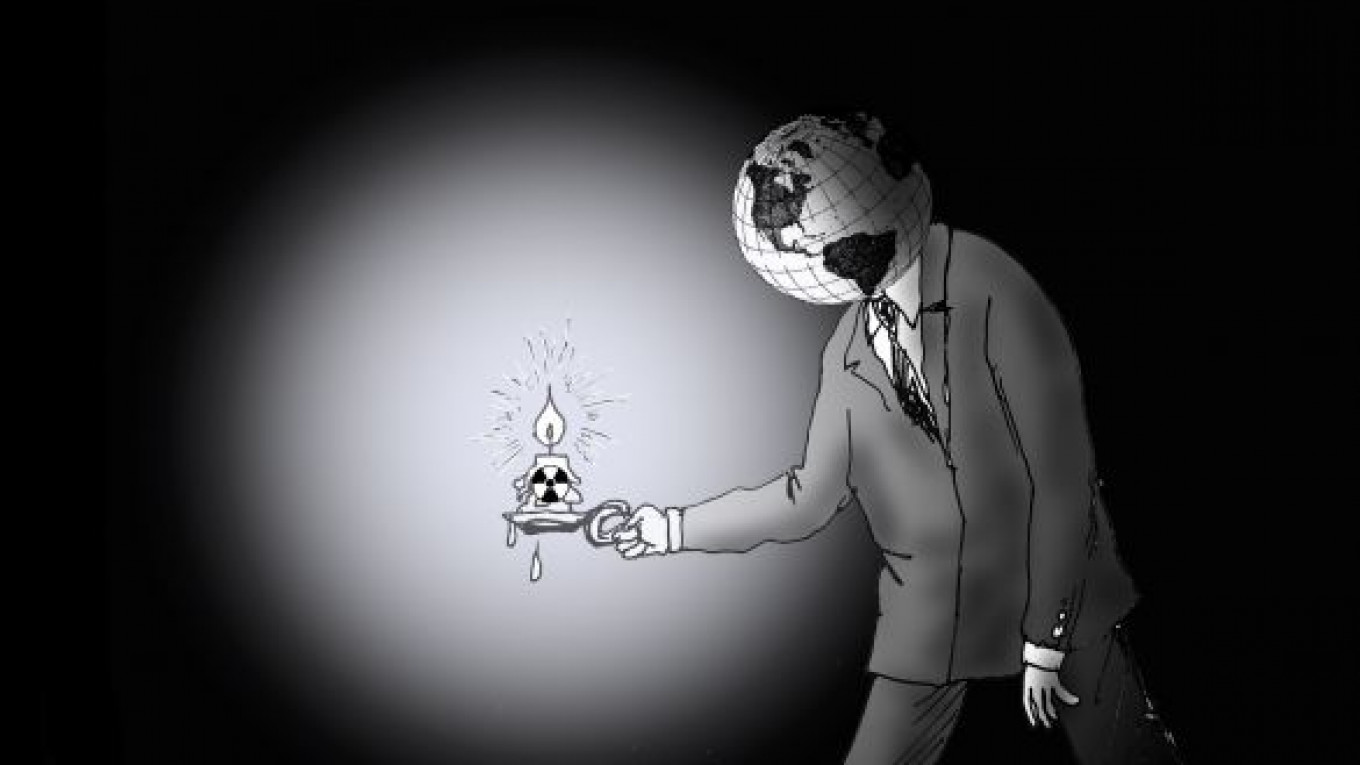Repeatedly in recent years there have been calls for a revival of civilian nuclear power. Yet that renaissance never seems to come.
Indeed, of the more than 200 countries in the world, only 30 use nuclear power. Roughly 16 percent of total energy needs (up to 25 percent in highly industrialized countries) are now met by electric energy. Nuclear fission’s contribution to total electric energy has decreased from about 18 percent more than 10 years ago to about 14 percent in 2008. On a worldwide scale, nuclear energy is thus only a small component of the global energy mix, and its share, contrary to widespread belief, is not on the rise.
During the next five years, on average, roughly 10 new nuclear reactors are expected to become operational every year. But this assumes that all of them are constructed according to schedule, and the nuclear industry has rarely met its promised construction deadlines. According to the World Nuclear Association, 17 new reactors should have become operational between 2007 and 2009. But only five came on stream during this period — three in 2007, and two in 2009.
Moreover, four reactors were decommissioned during 2009, and a larger number of reactors in Japan and Germany are not in use, owing to various technical stoppages. At least 100 older and smaller reactors will most likely be closed over the next 10 to 15 years.
Furthermore, during the past 10 years, only about two-thirds of worldwide demand for nuclear fuel — about 68,000 tons of natural uranium equivalent are needed for 2010 — was met from resources obtained from mining. The remaining 20,000 tons came from so-called secondary uranium sources — mainly inventories of reprocessed nuclear fuel and stockpiles of depleted uranium, held by utilities and governments. The supply from these sources will drop by roughly 10,000 tons at the end of 2013, when the Megatons to Megawatts program between Russia and the United States — which recycles highly enriched uranium from Russian nuclear warheads into low-enriched uranium for nuclear power plants — comes to an end.
Current projections indicate that uranium shortages in the coming years can be avoided only if existing and new uranium mines operate according to plan. Indeed, extrapolations of global supply that foresee an increase in uranium mining are based on claims about the ability to expand output in Kazakhstan. So far, uranium mining in Kazakhstan has increased roughly as expected, from 4,357 tons in 2005 to 8,521 tons in 2008 and to 14,000 tons in 2009.
But it remains to be seen whether the uranium mining in this country can indeed increase further to 18,000 tons in 2010 and to 30,000 tons by 2018. According to the World Nuclear Association’s latest estimates from July, the expected uranium extraction figure for 2010 has actually been decreased to 15,000 tons.
The view that the amount of energy derived from nuclear power worldwide will continue its slow decrease during the coming years is further supported by the 2008 annual report of the Euratom Supply Agency, which coordinates the long-term uranium needs of nuclear power plants within the European Union. According to the agency’s forecast, uranium demand in Europe will fall from 21,747 tons in 2010 to 17,378 tons by 2018 and to roughly 16,000 tons by 2024.
These numbers indicate that the EU, which is currently producing about one-third of the world’s nuclear electric energy, is heading for a reduction in nuclear-energy production of up to 20 percent over the coming 10 years. One can also expect that the current worldwide economic crisis will not help accelerate the construction of nuclear power plants and new uranium mines.
The hard facts about nuclear energy are inconsistent with the possibility of a worldwide renaissance of nuclear energy. Indeed, they point toward a continuing slow phase-out of civilian nuclear energy in most of the large member countries of the Organization for Economic Cooperation and Development.
It thus seems unavoidable that energy consumers, especially in many rich countries, will have to learn to exchange their current worries about the distant future consequences of global warming for the reality of energy shortages during periods of peak demand. Such shortages could result either in chaotic supplies and power outages or in a coordinated policy of energy rationing.
In the absence of nuclear-energy revival, most of us will be forced to reduce our direct energy consumption. Let us hope that we can learn to adapt to simpler — though perhaps still satisfying — lifestyles.
Michael Dittmar is a physicist at ETH, a science and technology university in Zurich, and at CERN, the European Organization for Nuclear Research in Geneva. © Project Syndicate
A Message from The Moscow Times:
Dear readers,
We are facing unprecedented challenges. Russia's Prosecutor General's Office has designated The Moscow Times as an "undesirable" organization, criminalizing our work and putting our staff at risk of prosecution. This follows our earlier unjust labeling as a "foreign agent."
These actions are direct attempts to silence independent journalism in Russia. The authorities claim our work "discredits the decisions of the Russian leadership." We see things differently: we strive to provide accurate, unbiased reporting on Russia.
We, the journalists of The Moscow Times, refuse to be silenced. But to continue our work, we need your help.
Your support, no matter how small, makes a world of difference. If you can, please support us monthly starting from just $2. It's quick to set up, and every contribution makes a significant impact.
By supporting The Moscow Times, you're defending open, independent journalism in the face of repression. Thank you for standing with us.
Remind me later.






